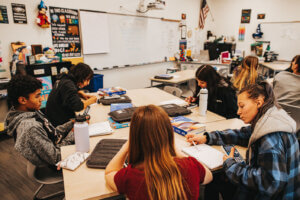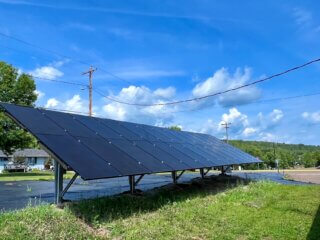 Image: Rachel Herring
Image: Rachel Herring
Strategic Direction
An Urgent Need for Change
As one of the few foundations in the nation devoted exclusively to rural needs, and located in rural, we are shifting our strategic focus to better meet rural Minnesota’s urgent challenges. Pandemic and racial turmoil accelerated many of the economic and social disparities that originally inspired our collective passion for rural philanthropy, and we must take bold steps to meet the moment.
Rural Minnesota has changed dramatically in the last 30 years and needs our best effort more than ever. Our communities are facing pressing issues:
- Disparities – rural people have to do more with less. Rural America gets only 5% of philanthropic dollars (Native under 1%) and 10% of small business loans. Government funding formulas are 40 years old and weighted against rural. The disparities are clear in digital equity, investment and banking – all heavily compounded by recent social and pandemic upheavals.
- Demographic Shifts – rural has lost population or stagnated while suburban has grown. Diversity in rural MN is increasing, bringing new cultures and neighbors to small communities.
- Energy Transitions – MN’s commitment to reduce carbon emissions will impact rural communities and Tribal Nations and create new opportunities.
To meet these challenges, we met with leaders, grantees, and nonprofit partners across rural MN and asked what our priorities should be. These in-depth, community-informed sessions framed our strategic plan. A bottom-up process of interviews, surveys, listening and data pointed us to measurable outcomes, equity and leadership.
Realigning for Impact
Armed with this information, we began to realign our work with current rural challenges and Charles Blandin’s original vision. Charles Blandin created the Foundation for the betterment of the worker and to foster harmony in rural places. Distilling all these factors into a robust strategic planning process, we identified the areas where we can have the MOST impact.
- Community Wealth-Building – building the rural bases of knowledge, money, workforce, entrepreneurship, and investment – and keeping those powerful resources close to home.
- Rural Placemaking – bolstering the arts, culture, natural resources, creativity and opportunities to come together that help us feel connected, invested and proud of where we live.
- Small communities – funding resources, skills and needed system changes in rural Minnesota’s smallest communities.
Vision and Framework

Rural communities and Native Nations face systemic discrimination because of place (where we live), race (who we are) and class (economic status).
Our new vision invigorates our approach to addressing these concepts:
Rural Minnesota places that welcome diversity, address injustice and embrace change to create a sustainable and equitable future.
What does that vision look like?
Rural communities that can thrive because they are rich in resources and connections, generating opportunity at the individual, community and state levels.
Connected individuals stay healthier, are happier, achieve higher education, improve their job outlook and are more likely to have long-term economic upward mobility.
Connected communities thrive amidst change, both unintended (disaster, economic uncertainty) and proactive (future-forward community initiatives). Learn more about your county’s social connectedness here.
How does the Blandin Foundation support this vision?
Building Rural Capacity
We work with rural partners to strengthen the resources and skills rural MN needs to address community problems or opportunities. This includes building the tools and structures that foster collaboration. We seek to create an ongoing ability of rural communities and organizations to accomplish their goals.
Rural Grantmaking
We are focusing our funding and programming on sustainable strategies that produce measurable outcomes in our 3 impact areas (community wealth-building, rural placemaking and small communities) and those that can demonstrate coordinated regional impact.
Rural Advocacy
Policies created to serve rural communities decades ago are no longer relevant or helpful to communities today. We will bring new research to change-making conversations. We will raise rural voices in service to people pushed to the margins of our communities, who live the realities of these policies every day.
Moving rural places forward to equitable and sustainable futures will take us all. We look forward to learning from you and with you as we step forward together towards strong rural communities.


